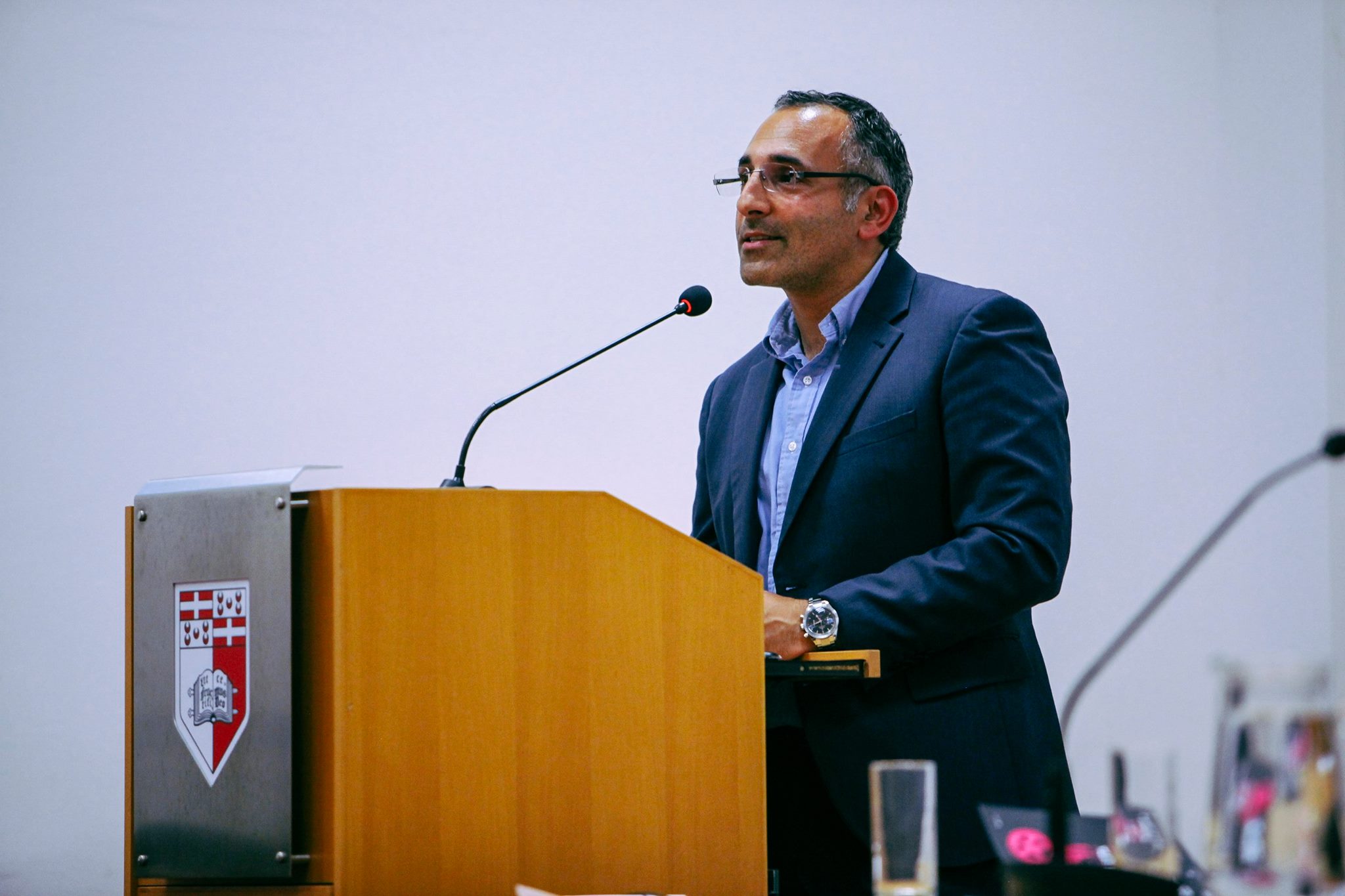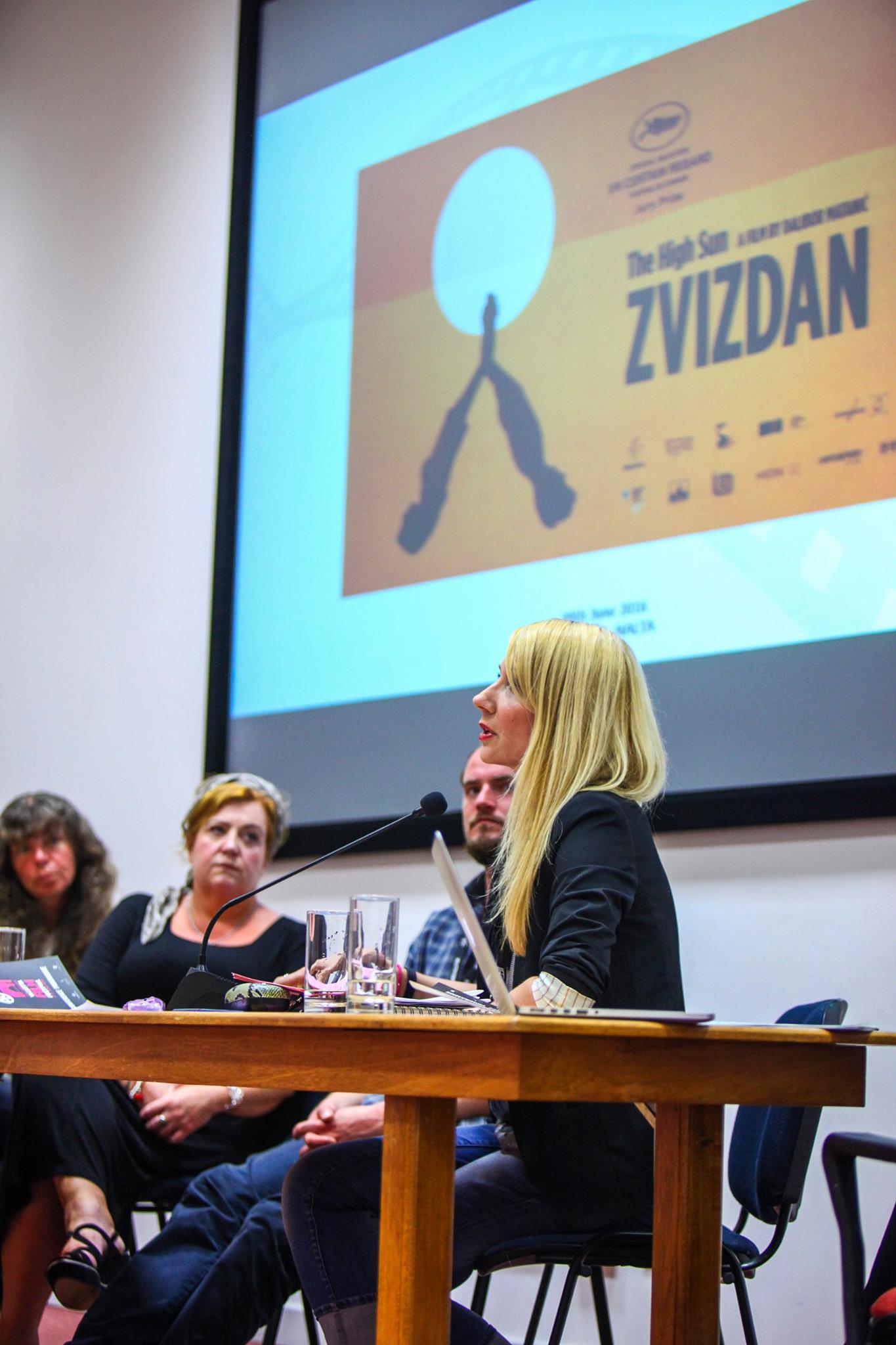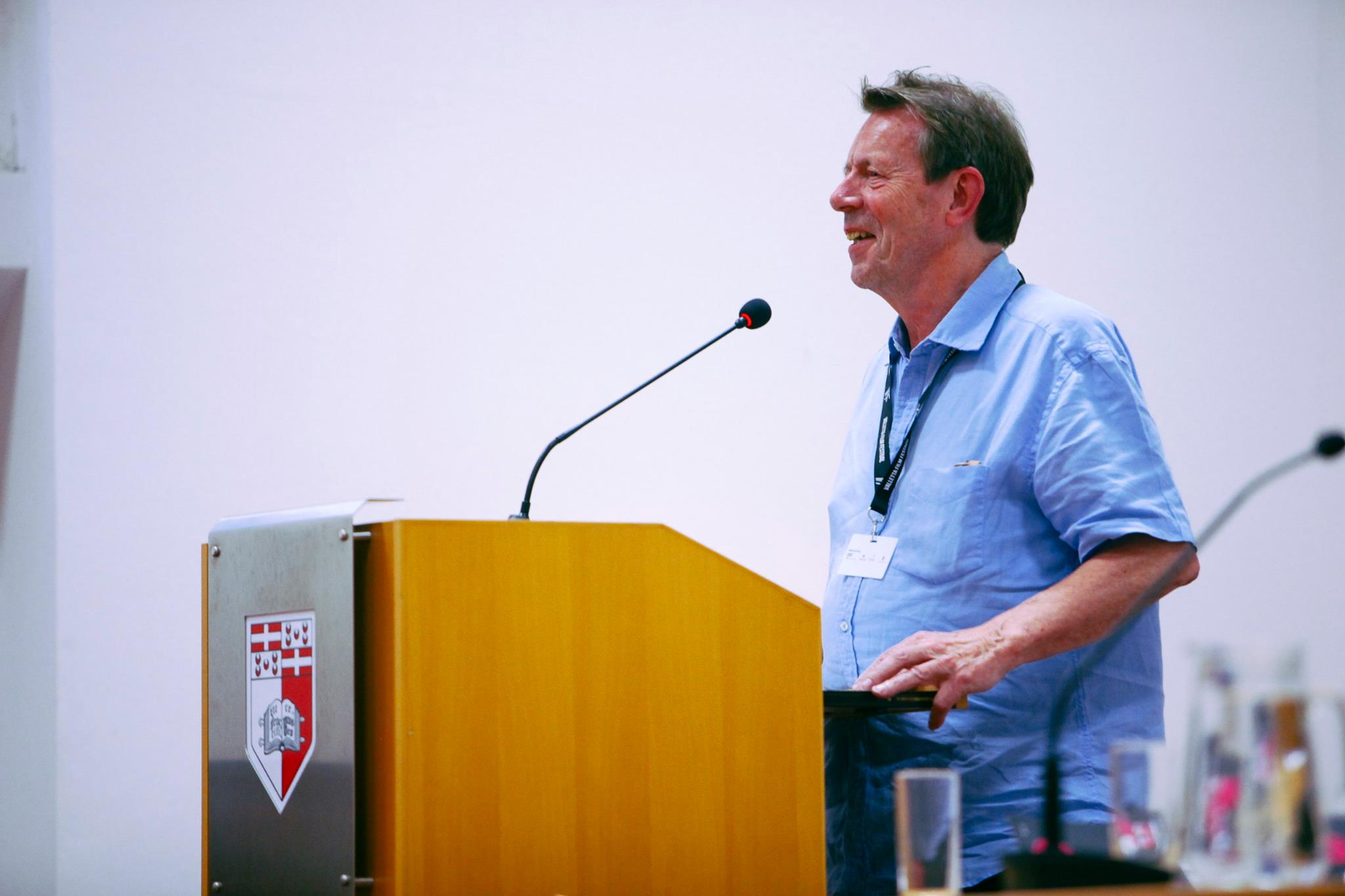Cinema of Small Nations report: Does size matter?
- The Valletta Film Festival played host to a conference entitled “Cinema of Small Nations”, which looked at the state of cinema in small European countries

On 9 and 10 June, the second edition of the Valletta Film Festival, which took place from 3-11 June in the capital of Malta, where 42 international films had their Maltese premieres (read the news about the awards ceremony here), played host to a conference entitled “Cinema of Small Nations”, which looked at the state of cinema in small European countries. The main themes of the event, supported by the Malta Film Commission, included the questions of how to make audiovisual industries sustainable in small states – such as Malta, Latvia, Iceland, Moldova and Croatia – and how to find ways to cooperate.

The event was opened by a speech from Engelbert Grech, the Maltese film commissioner, presenting the assets of Malta and those of the Malta Film Commission. Grech stressed that, while Malta’s audiovisual sector had previously been based mainly on the service industry, the Malta Film Commission tries to invest in filmmakers, infrastructure and education, with co-production agreements, while also lobbying the EU for access to the Creative Europe fund, as the country has not yet benefited from any Creative Europe funds, and small players must fight for their share of the cake.
"Small is beautiful,” added Anna Franklin from Film New Europe, who listed the advantages of being from a small country, such as better language and communication skills, and a capacity for innovation, while Henning Camre, executive director of the European Think Tank on Film and Film Policy, highlighted the importance of cross-border cooperation between smaller nations, to fill some gaps in areas such as data collection and research.
Content creation in small states
Does the difficulty of accessing audiences affect the content produced, enforcing ‘internationalism’ in the name of universality and marginalising fresh voices?

Latvian director Laila Pakalnina started this first panel by mentioning that the situation for filmmaking and audiovisual creation in Europe is better than it is in the US, as there is no need to recoup money from national or regional funds. She also shared her concerns about the use of audience numbers as a way of determining funding, as numbers are not a guarantee of quality.
Moldovan screenwriter Stefan Barbara presented the difficult situation faced by creators in his country, where talented people leave to work in bigger industries, which is compounded by the fact that there is no state film funding.
“People are desperate to see themselves, their city and their country on big and small screens,” added Irish writer and script consultant Mary-Kate O’Flanagan. There is a need for creation everywhere: “We need indigenous films made by indigenous filmmakers, and cultural diversity.”
“In small states, we jump into creation!” according to Martina Petrovic, head of the Creative Europe Desk – MEDIA Office in Croatia, who recognised that laws, film centres and contributions from TV broadcasters are ways of backing up creation. Petrovic also gave some examples of good practice, such as Dalibor Matanić’s The High Sun [+see also:
film review
trailer
interview: Dalibor Matanic
interview: Tihana Lazovic
film profile], and the Mediterranean Film Festival Split.
The participants added that taking part in different events, festivals, workshops, screenwriting sessions and pitching forums can help with thinking outside the box, thus facilitating the process of creation.
Film public policy and infrastructural aspects
What strategies can be adopted by smaller nations in creating the necessary infrastructure, boosting parallel industries and acquiring support on a European level?

Anna Franklin opened by explaining that film policy is everything in small countries. As subsidies are the only way in which films can be made and seen, it is almost impossible to recoup money, because the market is too small. In this sense, it is essential “to work more closely with MEPs, national film bodies and other players to have a direct input in Brussels”, within the EU institutions.
Henning Camre added to this by explaining that money alone would not secure success: “Talent, infrastructure, distributors, sales agents and producers are needed.”
Laufey Guðjónsdóttir, director of the Icelandic Film Centre, presented a case study on Iceland. Iceland publicly funded its first film in 1980, and three to four films are now funded each year. “The absolute minimum is to produce these three films a year; otherwise, we would not keep skilled people on board,” explained Guðjónsdóttir, who said that the rebate scheme of around 20% has been an important factor in attracting foreign productions, and co-productions. “We can be full of self-confidence in small countries,” the director added, referring to the recent success of Grímur Hákonarson’s Rams [+see also:
film review
trailer
interview: Grimur Hakonarson
film profile] and Benedikt Erlingsson’s Horses and Men [+see also:
film review
trailer
interview: Benedikt Erlingsson
film profile].
“It’s still a work in progress, and we’re doing a lot of fine-tuning,” Engelbert Grechstated about the Malta Film Commission’s policy as he presented the commission’s initiatives, such as the funding of courses for local filmmakers, cash rebates (up to 27% if Malta is shot as Malta, otherwise up to 25%) to get international teams filming in Malta, and a recently launched co-production fund, to help local producers join forces with international producers.
After explaining the funding accessible through the EU’s Creative Europe programme, Martina Petrovic presented some interesting figures from small countries: in 2014, the 11 low-production-capacity countries (Croatia, Iceland, Malta, Greece, Latvia and so on) represented 10% of the awarded EU projects. Despite the automatic points given to small countries in EU calls for proposals, the situation hasn’t changed a great deal, with 11.25% of the projects being awarded to these countries in 2015. “It is not that our film professionals are lazy: out of 14 calls, only six are accessible,” Petrovic concluded.
Dr Roberta Metsola, Member of the European Parliament from Malta, agreed: “What happens when a country cannot benefit from EU grants for film production because of its size, or a lack of a partnership and so on?” He added that politicians from the EU should understand that one size does not fit all. On a positive note, Metsola highlighted beneficial EU initiatives such as the LUX Film Prize, which helps some films to get through to broader audiences.
Film education – film literacy and skills from the professionals
What should the role of film education be, and what sort of professionals should it create to ensure the sustainability of the audiovisual industries?

“It is time to stop being a one-way street,” stated Anna Franklin, building on her positive speech by adding that small countries also have great experts and business models, and have good things to teach.
Mary-Kate O’Flanagan offered the example of Denmark, a small country where it took only two people to improve many things – another advantage of being small. She also mentioned that professional training is absolutely vital and is a lifelong process, as writers don’t have the opportunity to learn from others on set – unlike directors and editors, for instance.
“We are a small state with big stories,” Louiselle Vassallo, lecturer at the University of Malta, in the Department of Media and Communications, added. “We need to see ourselves on the screens, and we should follow Iceland’s example.”
This wish may become a reality, as the Master of Arts in Film Studies from Malta University, launched last year, was described by Prof Gloria Lauri Lucente as a good example of film education in Malta – the first of its kind.
Slobodanka Miskovic, director of Art-kino Croatia, presented a number of activities related to film education through Art-kino, and in Croatia in general: cinema schools that complement the teaching of media literacy in local elementary and high schools, as well as organising workshops for children on how to make films. “Thanks to small actions, we can teach children how to improve their critical skills and their film culture.”
Henning Camre presented examples of good practice in Denmark, where film education was set up in schools 50 years ago. As one of the key players in this evolution in Denmark, Camre explained: “I wanted to establish a strategy in film education. What I did was to find people in the UK, the US, Poland and France, and bring them together, aiming to adopt a Danish approach to that.” He also noticed that a challenge for smaller nations is their dependence on professionals trained abroad.
The future of film and digital changes in small states
What strategies are there to ensure that smaller nations have greater access to distribution networks, including the opportunity to place content on digital platforms?

On a personal note, documentary filmmaker Laila Pakalnina stated: “I am very excited by the internet. There are no borders any more. I am happy when someone downloads my film; it means that it is being viewed by an audience.” She also presented an initiative by the Latvian Film Centre, a web portal that allows those living in Latvia to see Latvian films for free, based on the idea that the movies are partly supported by public funding.
Hronn Marinosdottir (of the Reykjavik Film Festival) questioned the new figures unveiled by the European Audiovisual Observatory, which showed that most of the films available on VoD in the EU are American. “A film festival is extremely important for tourists and the film industry,” Marinosdottir added on a proactive note, presenting some of the events from the Reykjavik Film Festival, such as the industry days, but also more special events like films shown in swimming pools or in a cave: “To give movies the best possible promotion, you have to get people watching them.”
Slobodanka Miskovicpresented another positive aspect of their achievements: two years ago, independent cinemas across Croatia decided to create a network, and accomplish actions together in the fields of programming, marketing and film distribution. The Icelandic feature Rams [+see also:
film review
trailer
interview: Grimur Hakonarson
film profile] will soon be distributed via this network.
Yves Jeanneau (Sunny Side of the Doc) presented Asian Side of the Doc, which operates within a region that is facing similar issues to those faced by small European countries: ten countries joined forces and tried to put up a fight, by sharing the same pavilion at Cannes and creating a media management board to coordinate these countries. Jeanneau also talked about new VoD initiatives in Asia such as Iflix, the “Netflix” of South-East Asia, created by people from the region, and mixing blockbusters and content from those countries.
Henning Camre showed his approval by supporting easy-to-use video-on-demand platforms such as Netflix, and reflected on the only potential for growth in cinema – the internet. “The future is now,” he asserted.
Final remarks and closing speeches
The two intensive days of the conference concluded with a round-table including all of the speakers and focusing on their main ideas and wishes for the future of small nations.

“The fact that we are here is a wonderful step,” explained Laufey Guðjónsdóttir. “We can work together on distribution or co-productions. The creative hotspots are not only from the big countries. We should focus on practical matters: everything is about the right story, project or people.” Martina Petrovic agreed: “We need to co-produce and collaborate more, to help each other; this is a necessity.”
“We have four steps to succeed,” added Laila Pakalnina: “1. We should support the Valletta Film Festival; 2. We will become friends; 3. As friends we can make co-productions; 4. We can then more easily distribute films from small countries in other small countries.”
Slobodanka Miskovic insisted on lobbying and film education: “We should be more proactive on the local, national and European levels. Our sector should also be more heavily involved in education. Given that children are watching and sharing audiovisual content more than ever, we should develop their skills.” This stance was shared by Henning Camre.
Mary-Kate O’Flanagan added that the way to succeed is by being better: “We have to use the expertise from good people, to get people in who are really good at this.” This focus on people was also Hronn Marinosdottir’s main idea: “Meeting people is so important, so we have to keep on networking together.”
As for Yves Jeanneau, “A lab for projects from small countries, for co-production and co-funding, may be a great idea, and Sunny Side of the Doc can help.”
**********
The Valletta Film Festival is looking to continue working on improving cooperation between small nations, and will be hosting further related activities next year during the third edition of the festival, which will take place between 16 and 24 June 2017.
For more information, please contact Rebecca Anastasi on: rebecca@filmgrainfoundation.org.
Did you enjoy reading this article? Please subscribe to our newsletter to receive more stories like this directly in your inbox.















